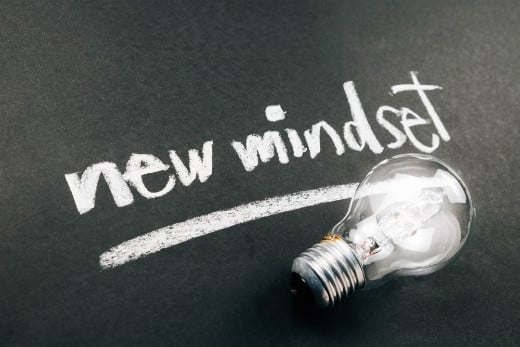By: Mussy Raitman, Lubicom Staff
Just about everyone I know wants to cultivate better habits. Whether it’s with food, sleep or screen time, everyone, especially in January, is looking to make those positive changes.
The problem; a few days in and not many people are willing to put in consistent hard work.
Most of us are hoping better habits will just magically develop. The next day we will wake up (half hour early, without even hitting the snooze button once) and head straight for that yoga mat. Then we will sit down to a protein-packed breakfast and head out to work, ready to conquer that to-do list.
The reality? Very unlikely.
I spoke with Rorie Weisberg, a certified health coach, about change, the challenges of change and tips to help us fight back that urge to stay comfortable where we are.
Here’s her take…
What does change mean to you?
Change means opportunity. Change means I have identified an area of my life that is not working for me and I want to improve my situation by making a change.
So you’ve got a bad habit, how do you go about, then, breaking that?
Working through the stages of change in order is crucial. Those stages are: observation, awareness, acceptance and then change.
Practically this means that before we can change something we have to observe ourselves. We have to stop and pay attention to how we are feeling, how is our life working for us. Once we observe ourselves, then we become aware of the areas of our life that are uncomfortable, unmanageable or simply not working in the way we want them to.
Then we have to accept it, we have to accept ourselves, accept the situation.
Only then can we move on to make a change. We have to come up with techniques, a game plan of how to better the situation. Change always begins with observation.

Why do a lot of our efforts at sticking with things fail?
I love the concept of a reset.
When you want to change something, it’s tough to be motivated. We know what it feels like when something isn’t working well, but we don’t know what it feels like when it is working. We can only imagine what it might feel like — for example, getting enough sleep. You know you’re always tired, always crabby when the kids come home from school, hungry all the time and very snappy to your spouse. You know in theory that you should be sleeping more and if you would, you would feel better. But that’s all in theory; you’re not actually experiencing it. So it just remains knowledge in theory. We don’t really know if making that change will help us.
My suggestion is to actually make a change that you want to keep for a short period. It would help if you experienced the benefit of that change. When you see how much better you feel that in itself will motivate you more than anything. Start with one area of your life and then commit for 10 to 30 days. Tell yourself, “I’m going to make this a habit and actually experience the benefit of change.”
Why doesn’t information alone work in helping change habits?
I think it’s mainly because of the lack of motivation. As I said previously, we know in theory that change is necessary but until we actually experience the difference of how we feel when we make that positive change, the lack of motivation doesn’t allow us to keep it.
Whereas when somebody holds to their commitment at least for 10 days, they can see for themselves if it’s worth the effort. By day seven you are feeling different than you did before. So now that you’re feeling different, you’re experiencing the benefits of what that change is offering you.
This will motivate you so much more than being told to do something or merely thinking in theory you want to do something.

How can we make change easier for us?
The first thing is accepting that change is not easy and has to be viewed as a challenge. An analogy I use a lot in coaching is about people who want to get fit. They want to build muscle, look slimmer, toned, or solely feel more comfortable in their clothes; nothing will stop them. They are willing to go to the gym and lift heavy weights and do exercises that are difficult. But something is exciting about that; people enjoy the feeling of being comfortably sore because that discomfort is an indication that they are growing, something in their body is changing.
But we can improve our mindset about changing habits. Instead of seeing it as hard, reframe it as a challenge. Instead of looking at it as an impossible mountain to climb, look at it as a challenge that you want to accomplish.
It really helps to start by taking on small, attainable changes because success breeds success. See the change as an opportunity rather than a burden.
Do you have a favorite motto that you live by?
“Change nothing, and nothing will change.” Humans love to complain. We can complain a lot about how we don’t like this or that in our lives, but it’s up to us to change. I say all the time, “Pick your hard.” Change is hard, but being miserable is also hard. You might as well work on something that your life will benefit from. Just remember to be reasonable, be realistic and most important be gentle with yourself.





